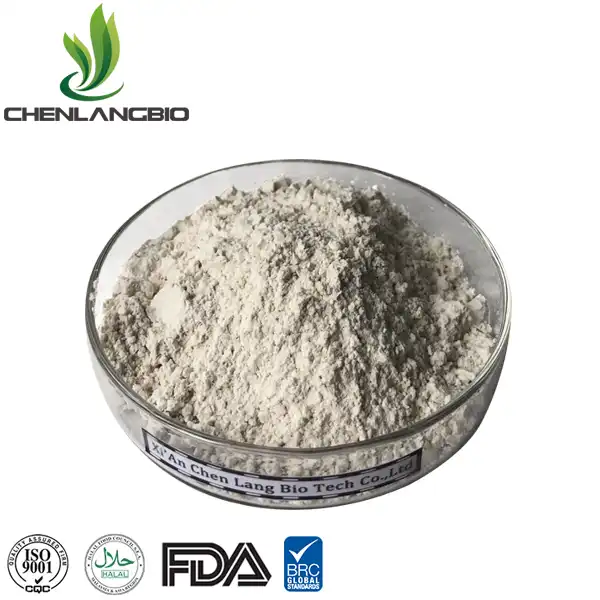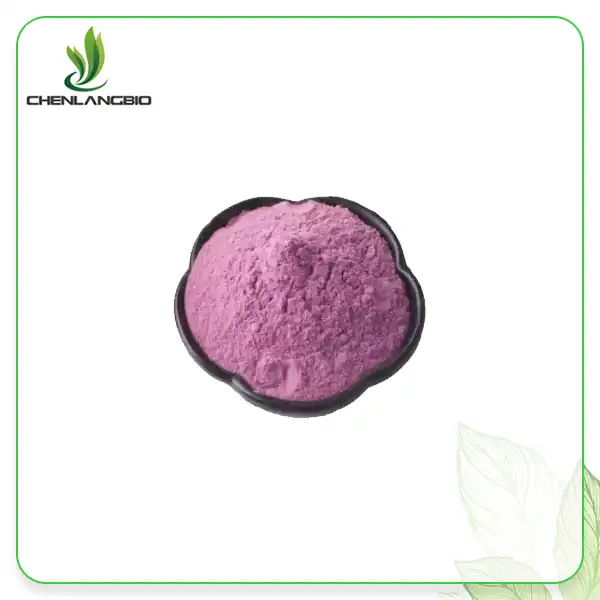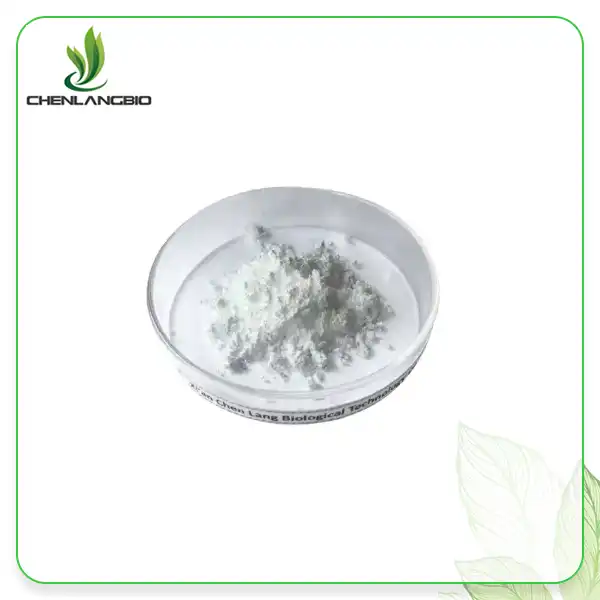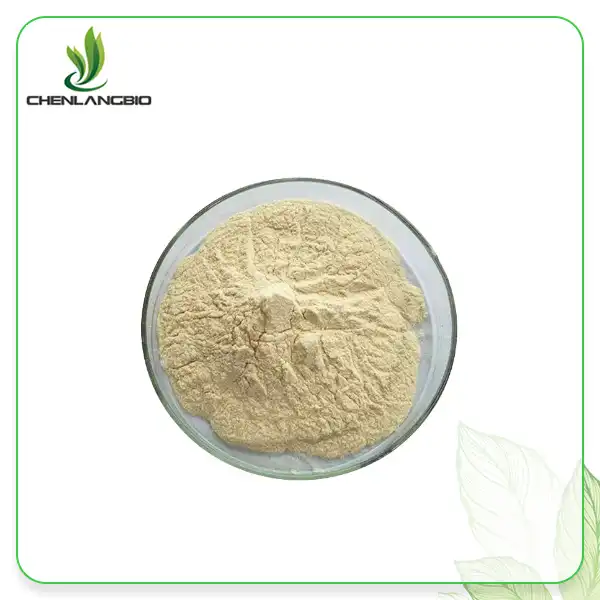Is Melatonin Safe For Long-term Use?
2024-05-11 18:52:49
Is melatonin safe for long-term use?
In later a long time, it has earned expanding consideration for its part in rest direction and its potential helpful applications. As people look for arrangements for rest unsettling influences and fly slack, questions emerge with respect to the security of long-term melatonin utilize. This article dives into the broad body of inquire about encompassing this subject, drawing bits of knowledge from trustworthy sources and master suppositions. By investigating the prove and master points of view, we point to give clarity on the security contemplations related with delayed it.
Understanding Melatonin: A Brief Overview
Melatonin, regularly alluded to as the "rest hormone," is a normally happening hormone delivered by the pineal organ in the brain. It plays a significant part in controlling the sleep-wake cycle, with levels rising in the evening to advance rest and declining in the morning to energize alertness. Past its essential work in rest control, melatonin too shows antioxidant properties and has been involved in different physiological forms, counting resistant work and disposition regulation.

Exploring the Safety of Long-Term Melatonin Use
Hormonal Effects:
Melatonin plays a vital part in directing the body's circadian beat and has been involved in different hormonal pathways. A few analysts have raised concerns approximately the potential affect of it on hormonal adjust, especially in helpless populaces such as teenagers and people with endocrine disorders.
Adolescents, in specific, may be touchy to changes in hormonal adjust, as they are experiencing noteworthy physical and hormonal changes amid adolescence. It might possibly meddled with typical hormonal advancement, in spite of the fact that more inquire about is required to completely get it these impacts.
Dependence and Tolerance:
There is limited evidence suggesting that prolonged use of melatonin supplements may lead to dependence or tolerance. Dependence occurs when individuals rely on melatonin supplements to initiate sleep, while tolerance refers to the diminishing effectiveness of melatonin over time, necessitating higher doses to achieve the same sleep-inducing effects.
However, the extent to which dependence and tolerance develop with long-term melatonin use remains unclear and may vary among individuals. Some experts believe that the risk of dependence is relatively low compared to other sleep medications, but further research is needed to elucidate these potential effects.
Interactions with Medications:
Melatonin supplements can interact with certain medications, including blood thinners, immunosuppressants, and some psychiatric medications. Long-term use may increase the risk of adverse interactions, particularly if individuals are taking multiple medications concurrently.
Healthcare professionals should be aware of potential drug interactions and monitor patients closely when prescribing melatonin supplements for long-term use, especially in individuals with complex medical conditions or those taking multiple medications.
Quality and Purity:
The safety and efficacy of melatonin supplements can vary depending on the quality and purity of the product. Some supplements may contain impurities or inaccurate dosages, which could pose risks to long-term users.
It's essential for individuals to choose reputable brands and consult with healthcare professionals before starting it, especially for prolonged use. Healthcare providers can offer guidance on selecting high-quality products and appropriate dosages based on individual needs and health status.
Addressing Concerns and Misconceptions
Hormonal Effects: While melatonin is a hormone, concerns about its potential impact on hormonal balance, particularly in adolescents, should be considered in the context of available evidence. While some studies suggest potential effects on hormonal pathways, the clinical significance of these findings remains unclear. It's important to emphasize that melatonin supplements are typically used in relatively low doses compared to endogenous melatonin levels, and adverse effects on hormonal balance may not occur with typical supplementation.
Dependence and Tolerance: The development of dependence and tolerance with long-term melatonin use is a subject of debate among experts. While some studies suggest the possibility of these effects, others indicate a low risk, especially compared to traditional sleep medications. It's essential to acknowledge individual variability in response to it and monitor for any signs of dependence or tolerance with prolonged use.
Interactions with Medications: Melatonin supplements can interact with certain medications, but the risk of adverse interactions may be relatively low, especially when used under the guidance of a healthcare professional. It's crucial for individuals to disclose all medications they are taking to their healthcare provider to assess potential interactions and adjust treatment plans accordingly.
Quality and Purity: Concerns about the quality and purity of melatonin supplements are valid, as the supplement industry is not tightly regulated. Choosing reputable brands and products that undergo third-party testing for quality and purity can mitigate these concerns. Additionally, consulting with healthcare professionals can provide guidance on selecting safe and effective supplements.
Regulatory Approval: In many countries, including the United States, melatonin supplements are available over the counter and are not subject to the same regulatory scrutiny as prescription medications. While this may raise concerns about safety and quality control, it's important to note that melatonin has been extensively studied and used for decades with a relatively low incidence of serious adverse effects reported.
Conclusion
In conclusion, the safety of long-term melatonin use remains a topic of ongoing research and debate. While evidence suggests that melatonin is generally well-tolerated in the short term, questions linger regarding its effects with prolonged use. By examining findings from clinical studies and heeding expert opinions, individuals can make informed decisions regarding the use of melatonin as a sleep aid. As research in this field continues to evolve, it is imperative to stay updated on the latest evidence and recommendations.If you have any questions or would like to learn more about our products, please feel free to contact us at admin@chenlangbio.com
References:
Ferracioli-Oda, E., Qawasmi, A., & Bloch, M. H. (2013). Meta-Analysis: Melatonin for the Treatment of Primary Sleep Disorders. Journal of the American Academy of Child & Adolescent Psychiatry, 52(10), 1038–1046. Link
Grandner, M. A., & Patel, N. P. (2009). From the mind of the physician-scientist: Time for melatonin to be seriously considered as a treatment for secondary sleep disorders in children. Journal of Pineal Research, 50(1), 1–7. Link
Send Inquiry
Related Industry Knowledge
- What are the Benefits of Using Kojic Acid Dipalmitate?
- Is Chondroitin Sulfate Powder Safe?
- What are the Benefits of Cetyl Tranexamate HCL in Skincare?
- How Can I Use Mung Bean Peptide Powder in My Diet?
- How Do Hops Flavonoids Work in the Body
- What is Ectoin Made of
- Does Bakuchiol Actually Work?
- Is Magnesium Ascorbyl Phosphate A Skin-lightening Agent
- What is Sophora Extract
- What Is Lufenuron Used For









